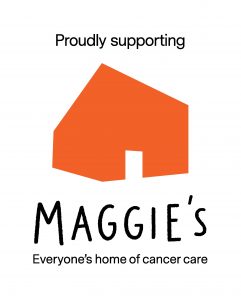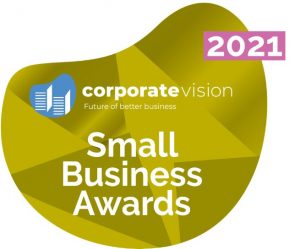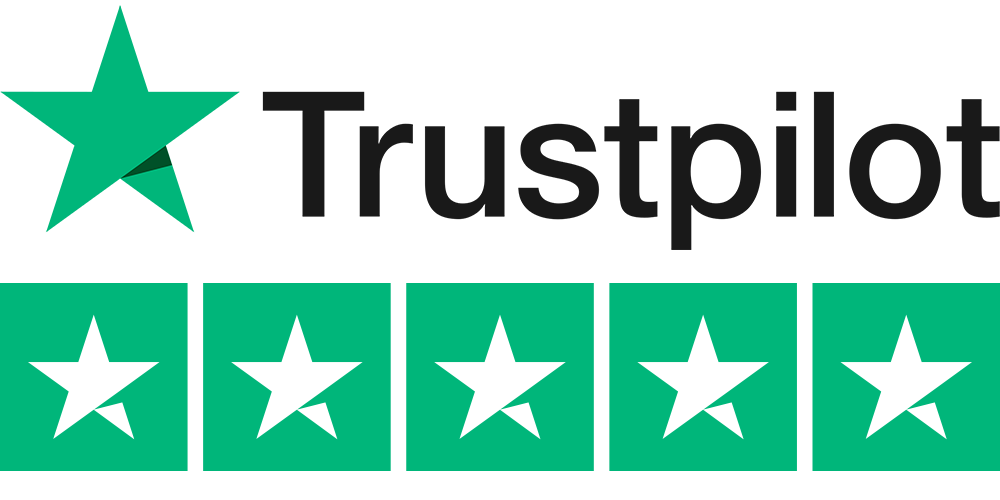Individual Voluntary Arrangement (IVA)
What is an IVA?
In short, an Individual Voluntary Arrangement – commonly known as an IVA – is a legally binding arrangement between you and your unsecured creditors.
You agree to make a single consolidated affordable monthly repayment, typically for a period of five years. At the end of the IVA, any remaining unsecured debts are written off.
Before diving into the details of an IVA, let’s first clarify the difference between secured and unsecured debt.

Secured or Unsecured Debts?
Secured Debts:
These debts are secured against an asset, such as a mortgage on your home. If you default on payments, creditors have the right to seize the asset. Repossession is a common outcome when secured debts are not maintained.
Unsecured Debt:
These debts are not backed by any collateral. Examples include credit card debt, personal loans, and store card debt. While creditors cannot seize assets for unsecured debts, they can take legal action, impact your credit rating, and engage debt collection agencies.
Key Points about IVAs:
Eligibility: Typically, you need a minimum debt level of £6,000 with at least two lenders to apply for an IVA. It is suitable if you have a regular income stream or a lump sum to contribute towards debt repayment.
Creditor Approval: An IVA requires agreement from creditors who represent at least 75% of your total debt. If approved, the IVA applies to all your credit lines, regardless of whether smaller creditors agree.
Debt Coverage: An IVA covers various unsecured debts, including credit cards, store cards, personal loans, catalogues, council tax, and more. Certain debts, such as student loans and child support arrears, cannot be repaid through an IVA.
Homeownership Considerations: As a homeowner, an IVA can provide protection against asset loss. However, you might be required to release equity by remortgaging your property or making additional contributions.

Benefits of an IVA:
- Consolidation: One affordable monthly payment covers all your debts.
- Frozen Charges: Interest and charges are frozen once the IVA is in place.
- Creditor Communication: Your Insolvency Practitioner handles all communication with creditors.
- Legal Protection: Creditors cannot pursue further legal action during the IVA.
- Fixed Term: The IVA typically lasts for five years, and any remaining debt is written off.
Considerations for an IVA:
- Credit Rating Impact: An IVA stays on your credit report for six years, affecting your credit rating and future access to credit.
- Legally Binding: An IVA is a strict contract with limited flexibility.
- Income Adjustments: If your financial situation improves, you might be required to increase your payments accordingly.
- Fees: Administrative fees charged by the Insolvency Practitioner are included in your monthly repayment plan.
- Expenditure Monitoring: Your expenses might be reviewed, and excessive spending could be questioned.
IVA Compared to other Debt Solutions
IVA
-
Debt written off after fixed term (usually 5 years)
-
Legally binding agreement with creditors
-
Credit Rating impact: 6 years
-
Minimum debt of £6,000
-
Repayment: 5 years
DMP
-
Single consolidated monthly payment
-
Informal agreement with creditors
-
Credit Rating impact: Varies
-
No minimum debt level
-
Repayment: Varies
Bankruptcy
-
Debt written off after 12 months Asset distribution and potential loss
-
Legally binding agreement with creditors
-
Credit Rating impact: 6 years
-
No minimum debt level
-
Repayment: 12 months
DRO
-
Debt written off after 12 months
-
Legally binding agreement with creditors
-
Credit Rating impact: 6 years
-
Debts below £30,000 and Personal assets below £2,000
-
Repayment: 12 months
Protected Trust Deed
-
Potential to keep home
-
Legally binding agreement with creditors
-
Credit Rating impact: 6 years
-
Minimum Scotland Residency of 6 months
-
Repayment: 4 years
*Please note that the durations provided are general guidelines and can vary based on individual circumstances. It’s important to consult with a licensed debt advisor or Insolvency Practitioner for accurate and up-to-date information regarding the duration and repayment terms of each debt solution.
Should you decide to apply for an IVA, bear in mind that:
- You might not be automatically eligible. IVA’s can be most suitable if you have a regular ongoing income stream and/or a lump sum of money to put towards your debt repayment.
- Your IVA will be approved if the creditors you owe 75% of your debt to are in agreement. If they agree, your IVA will then be applied across all your credit lines, whether other creditors you owe less money to are in favour or not. However, if more than 75% of your creditors reject the IVA your application will be rejected.
Use our quick and easy debt tool here. Whether an IVA is the best way for you to proceed or not.
- Catalogues
- Council Tax
- Credit Cards and Store Cards
- Hire Purchase (providing you no longer have the goods)
- Overdrafts from Banks and Building Societies
- Personal Loans and Payday Loans
- Tax Arrears including National Insurance and PAYE
What Types of Debts Can’t Be Repaid with an Individual Voluntary Arrangement UK?
- Car Finance (some can, some can’t, your Insolvency Practitioner will advise to suit your specifics)
- Child Support Arrears
- Crisis or Social Fund Loan Repayments
- Fines issued by a Court
- Mortgages (see below)
- Student Loans
- Television Licence Arrears
What Are the Implications of An IVA If You’re a Homeowner?
On one hand, an IVA provides the protection bankruptcy doesn’t, by ring-fencing your home if you’ve got a mortgage.
On the other hand, you might be -expected to take out a re-mortgage to generate a lump sum to go towards paying off your debts. This might not seem like a desirable outcome. But you won’t necessarily be forced to sell up.
There are several factors to consider when you apply for an IVA as a homeowner

- Property Value – It’s common practice to get your property valued to see if there’s a meaningful amount of equity release available. (Equity is the lump sum you’d get if you sold your house, minus your any secured loans against it, e.g. your mortgage and legal fees.)
- Obligatory Re-Mortgaging – If a valuation shows that the sale of your house would generate £5,000+, you might be obligated to take out a re-mortgage. Your equity release would then be contributed to paying down your debts.
- Equity Release Contribution Cap – There’s usually a cap on how much equity release is used for IVA payments. It isn’t a fixed sum. A cap is calculated on the size of the mortgage you originally borrowed and what the current value of your property is.
- Equity Release Exemption – It’s a rare occurrence. But there are certain exceptional cases where creditors might agree to an IVA without you having to re-mortgage your property. It doesn’t happen often. Your IP will discuss any likelihood with you before approaching your creditors.
How Does an Individual Voluntary Arrangement Work in Practice?
An IVA might sound like a complex process. The maths is actually quite simple and straightforward
- Payment Calculation – Your income and expenditure will be assessed to calculate your monthly surplus income. This will be your IVA payment.
- Insolvency Practitioner (IP) – To propose an IVA to your creditors you’ll need to instruct/engage a licenced IP.
- Single Monthly Consolidated Payment – Rather than paying your creditors directly, you’ll make one reduced, affordable monthly payment to cover all your included unsecured debts. This will be created and managed by your Insolvency Practitioner.
- Payment Allocation – Your appointed Insolvency Practitioner will allocate your monthly repayments amongst your creditors, giving you the peace of mind and reassurance that you’re on the path towards becoming debt free. Your Insolvency Practitioner’s admin fees will be included in your monthly repayment plan.
- Review – You’ll have regular reviews at least once a year to ensure you’re finding your IVA payment affordable.
Our direct Insolvency Practitioner for the Debt Resolution Service Limited is Jason Bowen, who is licenced to act in the UK by the Institute of Chartered Accountants of Scotland – Licence no. 22150. When you come to us in need of debt solutions, any specific IVA debt advice we provide will be given in anticipation of the appointment of Jason Bowen as your IP. If for whatever reason Jason Bowen is unable to take the anticipated appointment, then your details may be referred to a suitable alternative IP to avoid any process delays or detriment. Where we refer you to one of our partners, we may receive a referral fee.
How Does a Protected Trust Deed Work If You Live in Scotland?
There isn’t a great deal of difference between getting an IVA in England, Northern Ireland and Wales or getting a Protected Trust Deed in Scotland.
With an IVA, your assets – anything that can be converted in to cash – become the responsibility of your Insolvency Practitioner. At this point, you become shielded against any further pursuit or potential threats of legal action by your creditors.
The key difference with a Protected Deed Trust is your Insolvency Practitioner must make separate application to protect your assets.
It’s a technicality that otherwise follows much the same process and outcomes, such as:
- A freeze on any further charges and interest being applied by your creditors.
- Your creditors will stop pursuing you for repayments directy.
- A writing off of any debts that are still remaining when the terms of your agreement expire.
Read our entire section about Protected Trust Deeds here.
Additional Things You Need to Know About
- Accountability – You can’t get new credit for £500 or more once you enter in to an IVA without obtaining authorisation from your Insolvency Practitioner first. Some things, such as gas, electric and water are exempt from this rule. Your Insolvency Practitioner will talk you through your options should the need arise.
- Duration – IVA’s typically last for a duration of 5 to 6 years.
- Maintenance – You should do everything within your power to keep up to date with your IVA repayments. If you fail to do so, your creditors might take steps to force you in to bankruptcy.
- Transparency – It’s crucial you’re 100% open and honest about providing your Insolvency Practitioner with full details about your assets, creditors, expenditure and income. Any attempts to hide important information might have adverse consequences further down the line.
- Visibility – Your details will automatically appear in the Individual Insolvency Register. This is a public record of bankruptcies, IVA’s and other forms of debt relief. It includes names, addresses and occupations for all listings. The Register can be searched by credit reference agencies, employers, landlords and lenders, which might create adverse impact if you’re applying for jobs or hoping to move home. Your details will appear in the Register throughout the duration of your IVA and be removed 3 months after expiry.
Contact us today | Get on track to a debt-free life
No one should have to deal with financial troubles alone. Whether you’re looking to resolve your financial struggle once and for all or just want to ease the burden by talking things through, we can offer you information and assistance on how best to proceed. Get in touch today to take the first step towards a better financial future.




